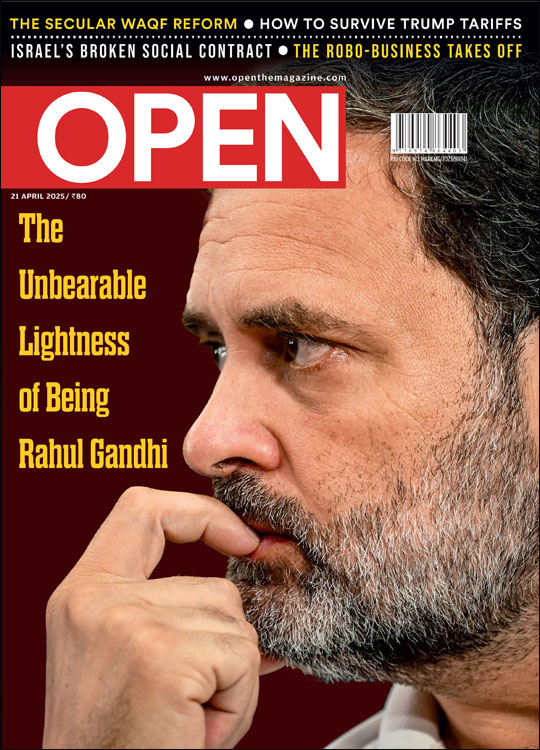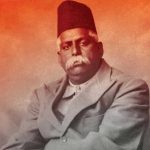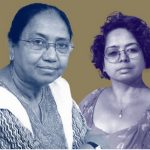The Last Ustad
Acclaimed writer and critic Shamsur Rahman Faruqi on poetry, Indian literary theory and Urdu’s legacy in an exclusive preview of his new book
 Rajni George
Rajni George
 Rajni George
Rajni George
 |
21 Oct, 2014
|
21 Oct, 2014
/wp-content/uploads/2015/11/Book-LastUstad1.jpg)
Acclaimed writer and critic Shamsur Rahman Faruqi on poetry, Indian literary theory and Urdu’s legacy in an exclusive preview of his new book
“When I was young,” he begins, then laughs. “When I was young, I mean!” In a leafy corner of Allahabad, that dusty old city modernising around vestigial past glory, a celebrated man of letters keeps history ever-green as he lives out his days in the old way, among a retinue of relatives, near-relatives and loyal staff. “We seem to be lacking what we need to understand our culture and past,” he tells me. “You have to know the past, or you don't know what you are deviating from. No one can really be the same person once one has absorbed that kind of richness.”
The kind of reward 79-year-old Shamsur Rahman Faruqi offers the patient reader. His airy home on Hastings Road (now Nyaya Marg), designed with the fluent space of the mosque in mind, bears the memory of his late wife, who supported Faruqi through the early days and lingers in the black-and-white images which chorus from room to room. His son-in-law and assistant Amin Akhtar manages his business affairs and joins us for lunch with his niece and grand-niece. Nearby, a parrot erupts occasionally, and a host of budgies and parakeets fill an outdoor enclosure. There are too many questions to ask, too many tales which may come of them.
The grand master of contemporary Urdu literature brings us, steaming, the fragrant stories we have missed, forgotten or mislaid by the wayside, in the hurtling cavalcade from resplendent and subsequently looted Hindustan to post- liberalisation India. A Scheherazade of many eras whose tales teem in the bylanes of the old Delhi he memorialises, Faruqi publishes a vivid new collection of stories around the lives of poets, The Sun That Rose from the Earth, in English next month. His first volume in English, The Mirror of Beauty— published in Urdu in 2006 as Kai Chaand The Sar-e-Aasmaan, a magnificent opus around 19th century beauty Wazir Khanam who enchants both Mughal nobility and an officer of the East India Company—was just longlisted for the prestigious DSC Prize for South Asian Literature. The 1,000-page epic is testament to the pervasive influence and accessibility of Faruqi’s work; the Guardian named it one of the best books of 2013, and the writer Mohammed Hanif compared it to the Koh-i-Noor.
Faruqi has authored a four-volume study of the poet Mir Taqi Mir, for which he won the Saraswati Samman, and another set on the Urdu oral epic Dastan-e Amir Hamza; he has written widely on ilm-e bayan (poetic discourse) and literary tradition as an influential critic; and translated popular and literary works; while editing and publishing literary magazine, Shabkhoon, and holding engagements at the University of Pennsylvania and Columbia University.
Today, he is among Urdu literature’s most prominent figures; a bridge between the rich inner chamber of that world and the large auditorium of the English-speaking world. “There can be no easy consensus,” he says. “Those who were opposed to me say, ‘Faruqi is taking refuge in the ruins of the past’. But if you see the past as a bundle of ruins, you have abrogated the responsibility to live. People think, ‘Arre kya hai, nothing but women and wine; praising kings to the sky. Ghalib was okay, because we understand him, otherwise theek hai’. It is easier to write of the ancient past than the near past.”
If there was ever a period to mine, it is that of the 15th through 18th centuries, as displayed in the lyrical mini-epics that make up The Sun That Rose from the Earth: at this time, ‘Hindu, Muslim, even the occasional Firangi, was like the moth on the taper of poetry, or crazy after the universal beloved called poetry.’ For, ‘The previous century was the century of the fullest flowering flush of Persian and the rise of the Golden Orb of Hindi from the earth which had lately been worshipful of only Persian’. These were central concerns, says Faruqi; “Ghalib is himself related to Indo-Persian poets and the decline of the star of Indian poetry circles is something I mention; Ghalib began to say in 1875 that Indian poets don’t know Persian poetry.”
Here is the early selfhood of Hindustan, rising to assert itself as an entity in its own, while mindful of its debt to other influences. But here is also restraint: ‘A poet should strive for newness, but newness in the world, not in an artificial, shallow courtly audience,’ proclaims the eponymous tale. These five powerful novellas—ranging from several hundred pages to one that is just about 70—form a single narrative in the sum of its parts, each dealing with a singular poet and the long tradition before him. Dense with reference and laden with the literal and figurative riches that fill the pages of Urdu literary history, the prose often scans like verse, mixed with verse and bits of song. Life, love and war level every one of these men of verse, and the women who take up with it too; the protagonists are usually orphans, to make their vulnerability even more apparent. Long, sonorous, plaintive in their slow, detailed unfolding, the stories connect in their attempted divination of the same mystery of inspiration, life—and death.
The project began, of course, with Ghalib, that pre- eminent Urdu and Persian poet of the last years of the Mughal Empire. “Ghalib’s 200th birth anniversary was celebrated in 1997 (not with the same gusto as his death anniversary!). Everyone was bringing out special issues. I thought I should at least devote some pages, 20 to 40 pages out of 80, in my magazine; others were doing special issues.” Faruqi had two contributors who were professors of Persian and Urdu, and one Banaras Hindu University scholar. He decided to contribute himself through fiction, to add to the mix. “I thought, ‘Let me write a story about Ghalib. In that story I’ll weave something about my origins in Azamgarh, then I’ll get into other questions about Ghalib, like why did he dislike Indian Persian poets.’ The story began with a first person narrator, a young man, and I picked dialogues from Ghalib’s own letters. The narrator clicked very well, a young—now old—man passing time in Kanpur having served in an ordnance factory. Somehow the voice was so compelling that people were deceived. I gave the author’s name as Mani Mahar Vishwa; they thought someone had written a memoir.” The story was well-received; he expanded to include other poets.
“I began with a great sense of disaffection; how to reinstate these people? How are they writing in the same city differently? What makes them different? I began to go into this matter in the late sixties. For example, Mir and Ghalib: there was a school which argued Mir was better, others argued Ghalib was the poet, that he seems to vibrate in the same rhythm as we do. There were others, too. My quest began here.”
Does he have a favourite poet? “Mushafi. Here is a man who has been given a dirty deal. I wanted to place him centrestage as he hadn’t been, bring him into the mainstream of Urdu literature and the life of Urdu. He came in the middle of things. He was so forward-looking, at the end of life he had adopted the style invented by his pupil. Even I follow it. I built the story about him around his wife, her entire character from one line; ‘My companion is a woman with whom I had a contract marriage’. I believe it is possible for a woman to be self – contained. She is a slave of her time, of her environment. Yet she’s able to stand up to life and adversity, to appreciate the goodness being done to her. He is my favourite poet, but still I can’t forgive him for not making any provisions for her.”
Isn’t the student’s trap looking too much at the life? “I’ve always denied the pride of place that people have given in my culture to the biography of the poet. Whether their life or success can be made relevant to their work, I don’t think it’s a healthy way of looking at this work. But it has been one of my curiosities. How would I have got along with Ghalib, Mir? Would they have got along with me? Whether their life or success, etcetera, can be made relevant to their work—I don’t believe in that.” What the biographies achieve is to create new literature in themselves, while advancing our understanding of evolving Indian poetic craft, of how our current idiom came into being, to mixed results: “Here in the mission school, the new Hindi was the rising star; I even heard some of the masters say that Hindi is a separate, independent language; it is the language of Hindus, whereas the language of Muslims is known as Rekhtah, or Urdu. We were further informed that Urdu meant ‘language of the Court of the Mughal’, or ‘the language of the lashkar’.”
Like Hindi itself, a ghost become new, appears a mysterious presence in the third novella, ‘The Rider’: a figure on a horse that is seen differently by different viewers, then echoed in the narrator’s sighting of a handsome poet who becomes a dear friend and then renounces the world, then in a courtesan the narrator desires. “Once I finished the story, I saw that it puts people in touch with Delhi of the 18th century. Powerful, rich, aware, not as decadent as historians have been telling us; they said it was a city of decline, that the whole 18th century was a period of decline after 1739 when Ahmed Shah had come and gone and so on. Delhi came out as a real, great, powerful entity.”
Faruqi began working with the Indian postal service in his early twenties, around the time he began to write. “At that time, everyone was writing fiction. I had a strong moralistic view, I knew everything about women and about life,” he jokes. A short novel was a result, and then that reality of his vocation: “I used to wait for rejections slips; at least this meant the stories had been received,” he remembers. He knew important people in the literary world, teachers at the University of Allahabad where he studied English; like scholar and critic Muhammed Askari, who he considers among his influences. He was also disdainful of some contemporary writers and critics, however, who in turn engaged passionately. An interview held as recently as the nineties is unusually volatile, recording an exchange between Faruqi and Urdu poet Prem Kumar Nazar, who charges him with egotism and a lack of understanding of Faiz, among other things (Urdu Alive, 1997). Charming and armed with tehzeeb, yet un- apolegetically blunt, Faruqi is not afraid to speak disparagingly of writers—“Not my kind of writer!” —and work—“I hate what is known as poetic prose”—he doesn’t enjoy.
The writer-critic is ultimately self-taught, and fought his way through the literary firmament as he met Western literary thinking with pre-existing Indian models. Dubbed the ‘TS Eliot of Urdu literature’ by critic Kalimuddin Ahmad (a tag he doesn’t seem to take to entirely), Faruqi is both supremely confident of his contribution to Indian literature and reluctant to take himself too seriously. He underlines the value of his magazine, too. “It was a platform,” he says. “It gave me access.”
The early days of Indian literary theory were crucial. “A number of people are important to the historical development of Urdu,” says Faruqi. “The fact is that the early modernisers didn’t want to go back to the past. They had read English only to the extent they were taught, and the first thing they were taught was extreme metaphorical statements are not desirable, open discussion is bad manners, and so forth and so on; that kind of narrow Victorianism is not known anywhere except in India. The Victorians were very colourful in their own way; they produced the longest pornographic novel, yet they were known to us for their pulchritude. For them to read Dryden and Pope, and then to read and enjoy Sauda and Mir, angry and bawdy, full of bad words… they thought, ‘This is not poetry’.”
What of the hunger today of English language publishing for Urdu and regional languages? “Now that there is a huge market for almost everything, it only needs somebody to promote them. There is a big market for the early progressives, partly because they are really great writers, and partly because of some nostalgic feeling for them. There is a kind of assertion that the immediate past generated by the late 19th century writers is important. The pre-immediate past is something else. From 1890 to 1930, most were practically illiterate in Western literature and could barely read high school Urdu; how could they go back to the great past? Fiction began to grow slowly, at the end of the 19th century.”
What is it like to translate his own work, he is often asked. “I have rarely added anything,” he says, of working between Urdu and English. “And I have not omitted anything. Though archaic Urdu is not possible to put into English, and women’s speech is practically extinct. High Urdu couldn’t go into English, so I use 19th century English. Now, the kind of otherworldly effect this Urdu has, has been able to revive itself in English.” Indeed, words like ‘carked’, ‘condign’ and ‘contumely’ litter the text, as well as expressions for the long health of potentates, the deepening of their shadows and other wonderfully atmospheric elements. Peculiarities of language? “English is rich in words of hatred, difference,” Faruqi says, always forthright. “Urdu is rich in words of love. Conveying the experience of love in English is not possible in the same way at times, but I didn’t try to make it sound sensual. As for the homoerotic, it becomes salacious. In Urdu, it passes, no problem at all. It was quite usual to be known as homosexuals, no one abhorred them as they would do even in the 1950s. The story ‘Timecompression’—I chose those people to show how subtly and how effectively homoerotic friendship can be shown without being salacious or attempting to be open; that is the great power of my language and my culture.”
The Urdu-to-Hindi translation of his texts is also of interest. A well-known translator, Naresh Nadeem, carried it out, and Faruqi was careful to retain the Urdu if it sounded clunky. “In English, this is not possible. In the Hindi edition, in some cases we could translate what the Urdu was saying. The difficulty was in words that are emotive. Urdu was Hindi at the time: Rekhta, Dehlvi, Japani. Literary Hindi. If you read any page of Hindi, it is full of Urdu words.”
Originality is both a recurrent theme and a necessary impossibility in Faruqi’s oeuvre; the idea of tawarud, or the same poetic expression coming simultaneously to two different minds, is referred to, as are other conventions based on earlier works. “The idea of originality, that this should come from your own stomach, your own heart—the tradition preceding you is so strong you can’t avoid it. In the early 1920s, a famous poet called Allaha said Ghalib’s verse was copied from an earlier verse long ago. At that time no one had the sense to say he was a fool. It was quite common to take a theme and give it a different slant, the tradition of istiqbal referred to in my book [in going forward to welcome the old work, the poet transcends it]. Up to the 19th century, the audience would know where you got the idea; intertextuality and all those phrases created by the French post structuralists. Every poem is nothing but a palimpsest over other poems which have been written before.”
Faruqi was Postmaster-General for a while in Delhi, which he describes as an easier job than others available, affording him time to write. “Delhi is not an easy place to live in, it has become almost impossible,” he says. “Even in 1996, through the pace of life and the way it was growing, I could see no one had any affection or love for that city. Everyone was using it for their own purposes, not to contribute anything to the city itself. The Delhi that lives in my imagination was almost completely gone when I went there.”
One of his first visits was in 1958, a short visit for examinations, but right in the heart of the city; “I wrote these stories partly because of this. That memory was practically erased from the surface of the earth. And whatever I read, in fiction, Ahmed Ali’s Twilight in Delhi and other books by Khushwant Singh and others, they were so Anglicised.” The knowledge of the past remained out of reach in English, he says. “My own people were almost entirely aware of the past, those professionally involved by being writers of Urdu, claiming to be representatives of the Urdu of 18th and 19th centuries and earlier. In Urdu, there are a huge number of metaphors and tropes that are inexplicable today unless you understood the mind that created those tropes.” He cites a few examples; “Ask any Urdu scholar, why are the eyes of the beloved bimaar, or sick? The idea is that you can’t rise because you are ill; this can be applied to the beloved’s eyes. And why is the sky called old? Because it is bent!”
The writer works in all rooms. Sometimes the bedroom, a light-filled space with a large double bed and a James Patterson novel half emerging from under a pillow—“I may pass the day reading a light novel”—sometimes the adjoining living room, sometimes the study spilling over with books bearing all scripts. The last is an open point of access for many visitors; in the afternoon, a clutch of teachers have arrived to see how Faruqi saab is faring after recent health problems.
The caretaker of classics is also interested in contemporary literature and speaks of the contemporary work of Mohammed Hanif, Amitav Ghosh and Vikram Chandra fondly; on Sacred Games, “I love that book, it’s a true book”. But, he maintains, “We must not be afraid of the past. The other stories you read are valuable, but they are not Indian.”
Next, he plans a new novel he has had in mind for a while, and a translation of Mir which is underway. He stands strong by the edifice, even as it crumbles; he may be the bridge, but his great-niece, I hear during lunch, does not read Urdu literature, though she studies it at school and reads the Quran. Who are his successors? And what is his advice to readers and writers today, who cannot appreciate the original language and story, to writers who deal with India today?
“I admire them, I like them. They have given me days and days of joy,” he says. “Someone had to experience all of this. Those who did not know will write their own kind of book. If we can’t emulate them, at least learn to value them. A whole century of my past… and no one has undertaken the task of reconstructing that past. Maybe all we can do is read about that. If I can create readers who at least want to access that world, I hope I have achieved that. We can go back, and return with some fruit from there.”
EXCERPT
‘It was Mir’s sense of humour that saved him from another onrush of melancholia, or even mental derangement. He was no longer that very young and inexperienced man who believed that a girl of surpassing beauty beckoned him from the moon on moonlit nights. He could smile at his own Akbarabadi accent and intonation, just as he smiled a minute ago at the harsh karkhandari intonations—freely dropping the somewhat vague ha sound, and substituting the emphatic ya in its place, enunciating all the hard sounds even harder—of the boy messenger whom he had been upbraiding, blaming him for not delivering his letter. He could laugh at his own impatience, his own eagerness, juvenile at best, and futile and pointless at worst. Just as he could laugh at these idle things, he could also laugh at his love (or lust, or perhaps nothing but lust). He could see that his love-lust could also be a form of self-love, the expression of the desire to be admired by a beautiful woman of great refinement.
He had no illusions about his love, or about his own self. Neither one was from a world outside this world, not from another planetary land, not from an ultra distant star. What he was doing was play, lila, of the gods, or of men. I am not the first lover, nor Nurus Saadat the first beloved. Everyone believes their world to be very big, though in fact all worlds are very small, puny and insignificant. Of what weight are the loves loved here, the lives burnt and the souls reduced and diminished here? These are smaller than chess games played on the tiniest of boards. What is Lailah here and who the mountain-cleaver Farhad? What are their madnesses, their failures and successes?
I am a poet, perhaps a great poet, but a lover? I am just like any other lover. Not above him, not below him. All of us feel the same heat of lust when it boils over; all of us have the same self-regard, and perhaps the same contradictory desire to lose oneself in the ocean of love, to let oneself go, to destroy one’s own self and be reborn in someone else’s self. I am not alone in this. There have been others, there will be others.
No, I can’t fl y above the great poets, the great lovers. I love the body more than the soul. But, oh Mir, what body would that body be whose fragrance seems to be running away with me not only in my thoughts but also in my body!
Well, I can at least laugh at myself. Was it not I who wrote:
We’ve heard of sad people
But none could ever be like Mir
Who, when he heard the word ‘Joy’
Said: It must be someone’s name!
… But no, I am well aware that the realm of poetry is not the same as the world of men. They’re not equal, not even parallel. Men want bodies. I want the heart of Nurus Saadat, but only for the duration that she makes her body my body. I should take off her clothes; keep awake the whole night, looking at her bare body. Stupid, am I not?
… Mir was not the same Mir now, but what he’d lost were his angularities. Nurus Saadat’s love taught him humility, at least in the presence of love. He joked and played the games still, especially chess, of which he was something of a master. But he also knew that he was small. He could write any kind of poetry, but he could not command his kind of woman.’
Excerpted from ‘In Such Meetings and Partings, Ultimately’, The Sun That Rose from the Earth
(The Sun That Rose from the Earth (Penguin Books India, 620 pages) will be published next month)
About The Author
CURRENT ISSUE
The Unbearable Lightness of Being Rahul Gandhi
MOst Popular
3

/wp-content/uploads/2025/04/Cover-Congress.jpg)











More Columns
Ukraine silently encroaches on ‘friendly’ Moldova Ullekh NP
NFRA chief Ajay Pandey joins AIIB Rajeev Deshpande
The Revenge of Roughage V Shoba